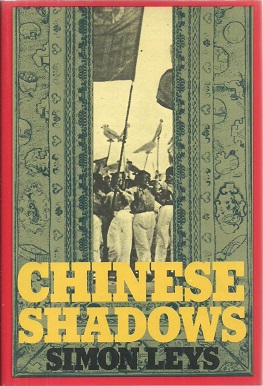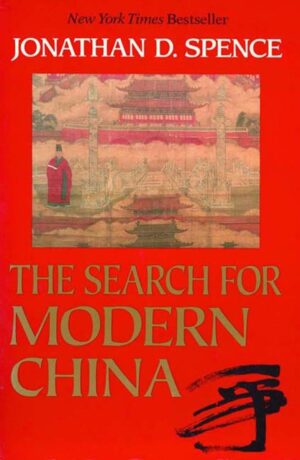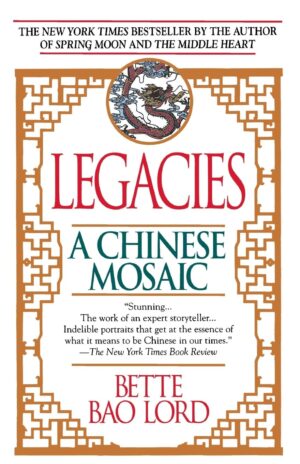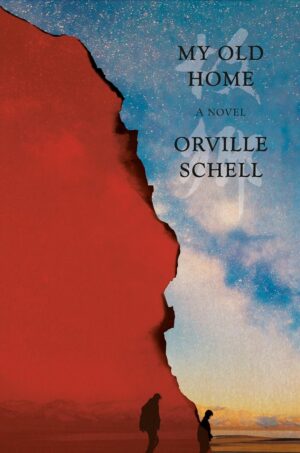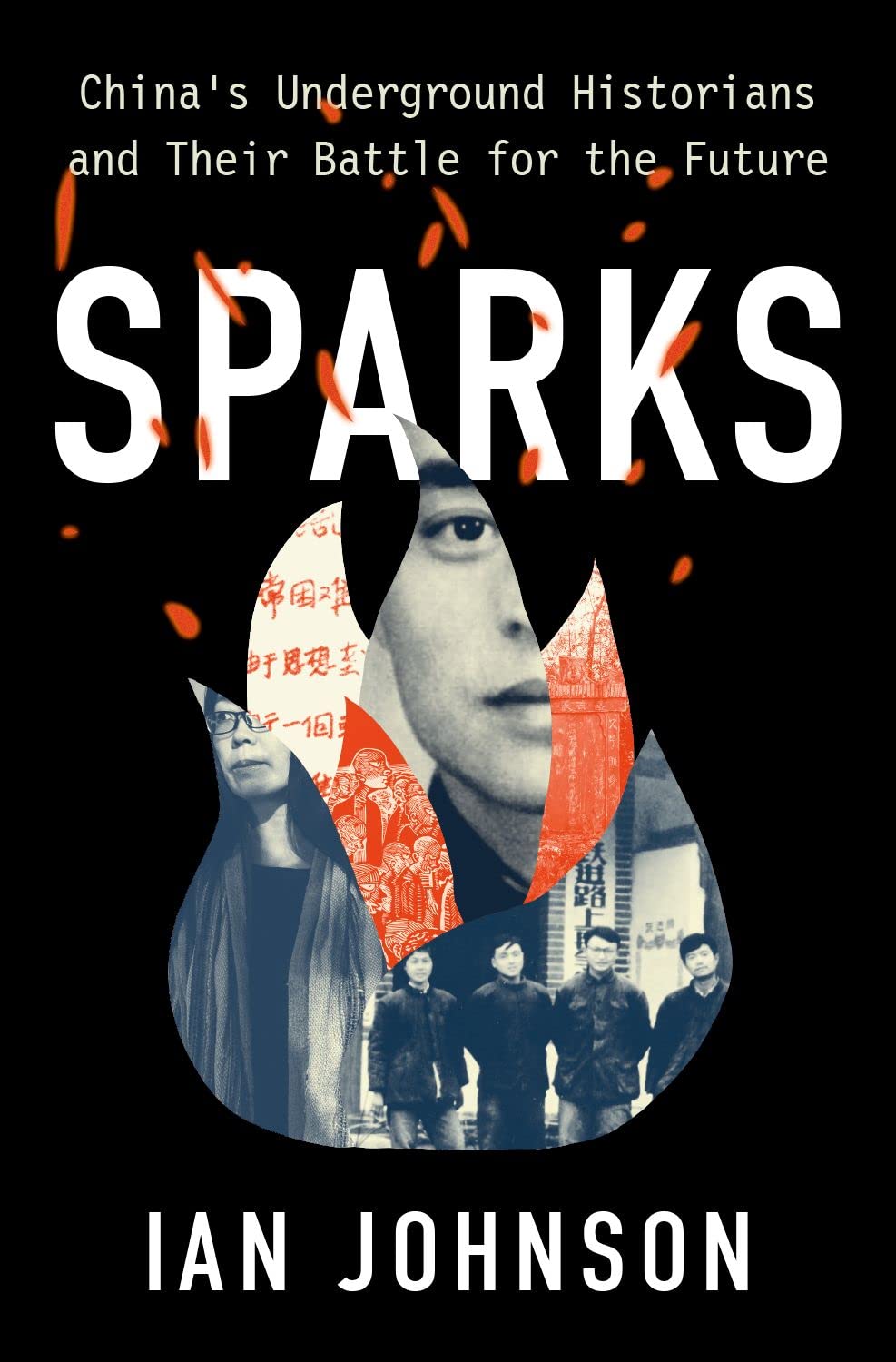
Winston Lord was the U.S. Ambassador to China from 1985 to 1989. Previous to that, he was Director of Policy Planning at State Department, and as special assistant to Henry Kissinger in the early 1970s he was instrumental in the U.S. restoration of relations with China, which he visited nine times. He has also served as president of the Council on Foreign Relations, and Assistant Secretary of State. His wife, Bette Bao Lord, is an acclaimed author of several books on China. In this latest installment of our occasional bookshelf column, we caught up with Winston and Bette Bao Lord to ask about their collection of China-related books, and for a selection of five interesting titles from their shelf.
Why did you start collecting books on China, and how did the shelf expand?
When you first asked me to do this, my instinct was to decline. I do not have a China library — there go the visuals. I am not a China scholar. I do not read or speak Chinese. For most of my career I was a generalist or Asian specialist, not focused on the Middle Kingdom. While I have read a good amount on the subject, much of it is highly classified or articles and think tank reports. But two events have impelled me to read as many China books as I have: A 1938 birth in Shanghai, and a 1971 secret plane ride over the Himalayas.
Ever since meeting my Chinese wife, Bette Bao Lord, I have striven to absorb the culture and history of her native land, the DNA that enriches our lives and will reside permanently in my descendants. I first met Bette at the Fletcher School of Law and Diplomacy, 66 years ago. She took perfect notes in our shared economics class, my weakest subject, so I decided to ask her out for a date, a Yale-Harvard hockey clash. Twelve years later, in 1971, I boarded a flight to become the first American official to enter China since 1949, as Henry Kissinger’s special assistant. Since then, I have sought materials to instruct and guide me on one of my core career paths, and continue to read China books for cultural enlightenment and professional standing.
While ambassador in Beijing from 1985-1989, what role did books play in your diplomacy?
Bette and I regularly recommended the best contemporary American fiction titles to the Chinese Vice Minister of Foreign Affairs, Zhu Qizhen. Invariably he came back to us swiftly, and we would exchange opinions.
When we arrived in Beijing in 1985, Bette’s novel Spring Moon (1981) was an international best seller. Several terrible Chinese translations (ignoring, of course, all intellectual property rights) were in the works. The most egregious, with over 200 glaring mistakes in the first chapter alone, was about to be published. We went to the Vice Minister of Culture — the renowned actor, Ying Ruocheng — and said that if this came out, we would buy up all the copies, invite the entire journalism corps to the embassy, and light a huge bonfire. Not only did he squelch publication, but his wife, Wu Shiliang, labored close to two years doing a superb translation, which became the only one. From her hospital deathbed in 1987, she expressed to Bette her remorse that she had not completed the final chapter, which Ying Ruocheng proceeded to do.
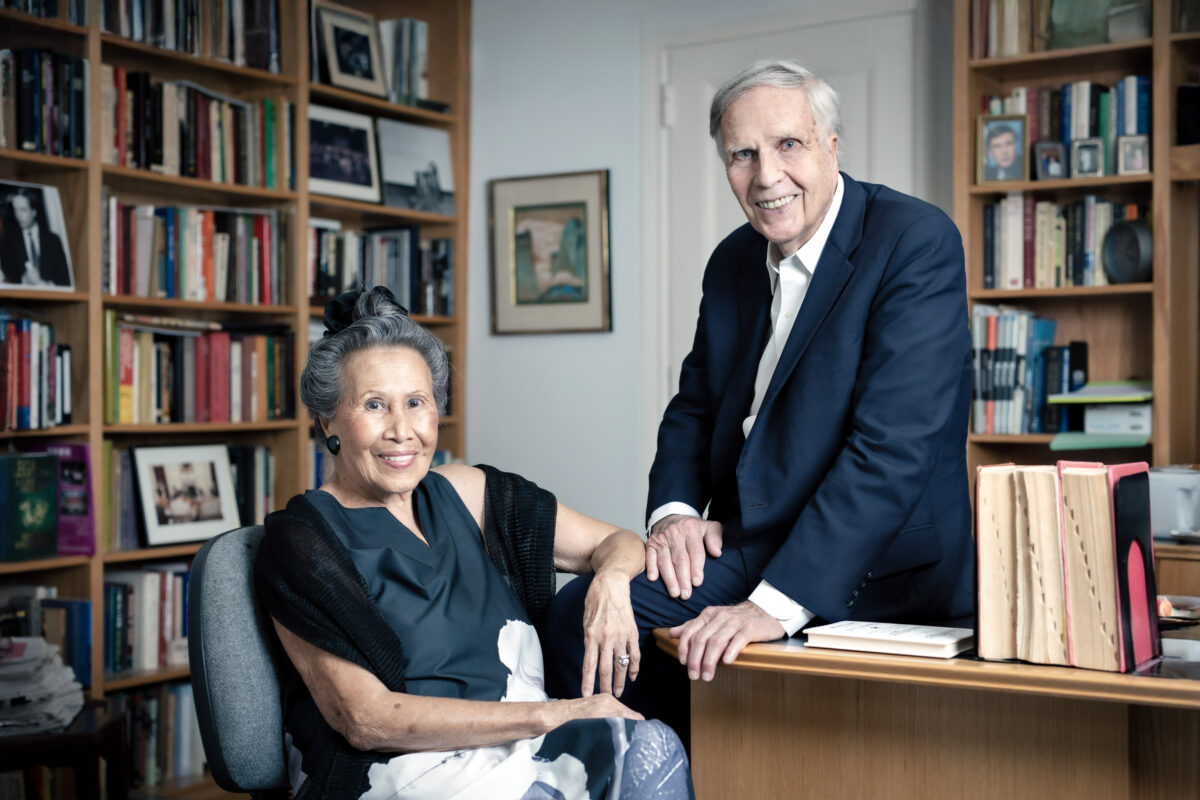
Where is your collection now, and how do you organize it?
We are both avid readers, and so there is an eclectic supply of books all over, upstairs and down. We have six mini-libraries in our apartment. Upstairs, Bette has a daunting, quite orderly array of China books in her office, largely to fortify the research for her own manuscripts. My office features, on its shelves and floor, a broad assortment of non-fiction hardbacks, including China tomes. The hallway shelves are divided between historical and biographical works on one side and Bette’s fiction CDs on the other. Indeed, the growth of our mini-libraries has been stunted for a couple of decades due to her total adherence to audio books. Downstairs, one room’s shelves are packed with paperback fiction, arranged by authors’ names. Another room displays hardback fiction, similarly ordered. And a large counter in the kitchen area is strewn with hardbacks of every conceivable category, including some China books.
What else lives on your bookshelf?
The books on my office shelves are fronted and adjoined with esoterica: a portrait of my Yale Skull and Bones classmates, invitations to my son’s wedding, autographed balls and bobbleheads from my favorite sports teams, and a chunk of the Berlin Wall. These vie for attention with books by Ulysses S. Grant, Henry Kissinger, Ron Chernow, Barack Obama and Jackie Robinson.
I was an English major and Bette is an author, so fiction generally reigns. We are in a book club that has run for 27 years and read almost 200 novels, the only form allowed. My personal favorites are classics of fiction, especially Russian, British and American. Other genres include memoirs, biographies and historical accounts of events in which I was involved — on these I always check the indexes first. American history. World War II. Politics. Sports. I believe that broad reading, especially fiction and history, not only cultivates my quality of life, but attunes me to human nature, informing my encounters with other cultures and people, whether we are drinking or negotiating.
We went to the Vice Minister of Culture and said that if this terrible translation of Spring Moon came out, we would buy up all the copies and light a huge bonfire.
Winston Lord
Winston Lord’s Bookshelf Picks
Chinese Shadows
I have perhaps stretched a rule of this series by choosing Leys again. This testifies to the enduring impact this author has had on countless China watchers and policy-makers. The Belgian’s searing work was published in the early 1970s, precisely when I was traveling to China with Nixon, Ford and Kissinger to open up relations. I read it shortly after those adventures, and it has had a wallop ever since. Leys was among the first authors, and perhaps the most scathing, to assault the political and cultural destruction under Mao’s rule and the hypocrisies of the regime’s defenders. I, of course, knew the ugly sides of Mao’s China as we held our nose for legitimate geopolitical priorities. But this work documented the scene with a visceral accounting. He painted the trees in winter, without “leafy masses” of camouflage, so that their “stark nudity can best reveal their inner structure and specific characteristics.”
The Search for Modern China
I consumed this historical masterpiece, ranging from the Ming dynasty to the Tiananmen massacre, soon after ending my term as Ambassador to China. For me, and countless others, it has been a looming framework for all my Chinese pursuits. It is widely considered the best, certainly the most accessible, one volume history on recent China. Rich in scholarship, drawing on remarkable research, the book is filled with reading lists, maps and tables. It is at the same time fluent, with core themes and illustrative narratives. By his own account, this is more about how modern China was created rather than modern China directly. The Search for Modern China is for the expert and general reader alike, and is the first work I recommend to those beginning their own search.
Legacies
A Chinese Mosaic
I refuse to recuse. Omitting one of Bette’s books would be rank dishonesty, a manifestation of nepotism-phobia. My challenge was to pick just one. I was sorely tempted to tout The Middle Heart (1996), but instead I chose Legacies, another best seller, because it captures so poignantly the tribulations and spirit of the Chinese people. Bette wrote it immediately after our Embassy tour in China and her stint as a CBS television reporter covering the Tiananmen demonstrations. She invokes both, as well portraits of her family in China which stirred me personally. But the core of the book are gripping tales of survival told to her in confidence by Chinese friends. We relive horrors and discover heroism during the Cultural Revolution, while the chapter headings toll the unfolding drama on Tiananmen square. If you want to know why that man stood in front of the tanks, read this.
My Old Home
A Novel of Exile
Nothing is more infuriating than to see a jewel of literature lying in relative, unjust obscurity. I hail My Old Home in the hope that it will attract the hordes of readers it deserves. This wrenching and beautiful novel is Orville Schell’s only work of fiction, 20 years in labor, and an ode to his beloved late wife Baifang, whom he lost just as the novel found life. This resplendent tapestry fully meets my four core criteria for a great work of fiction: gripping narrative, indelible characters, elegant style and universal themes. The reader lives the searing history of communist China through vivid actors, both noble and repugnant, and mesmerizing scenes. The book brims with Chinese poetry, history and culture, while conjuring other worlds, ranging from Bach to grasshoppers. In its distinct journeys it invokes grander motifs of human nature. We are both enlightened and moved.
Sparks
China’s Underground Historians and their Battle for the Future
I am in my “golden years,” marked more by reflection than exertion. I have worked on China, in and out of government, for over a half century, and have been married to a Chinese woman for more than six decades. Yet this book reminds me how little I know or understand about that land. It is virtually impossible to dig beneath the opaque surface. One is tempted to indulge in generalities. Ian Johnson comes to our rescue. Before reading this book, I had no idea about the broad subsurface efforts of courageous Chinese to preserve historical truths and remembrances through writings, films and art. This resolute parade of underground personalities and movements reflects remarkable research. It is a dramatic and inspiring narrative, as well as a prodigious feat of reporting. The book carries meaning for everywhere autocrats seek to control not only a nation’s population but its history itself. Even in China, there is hope. ∎


